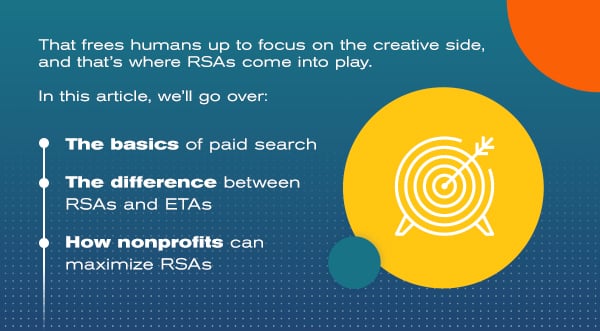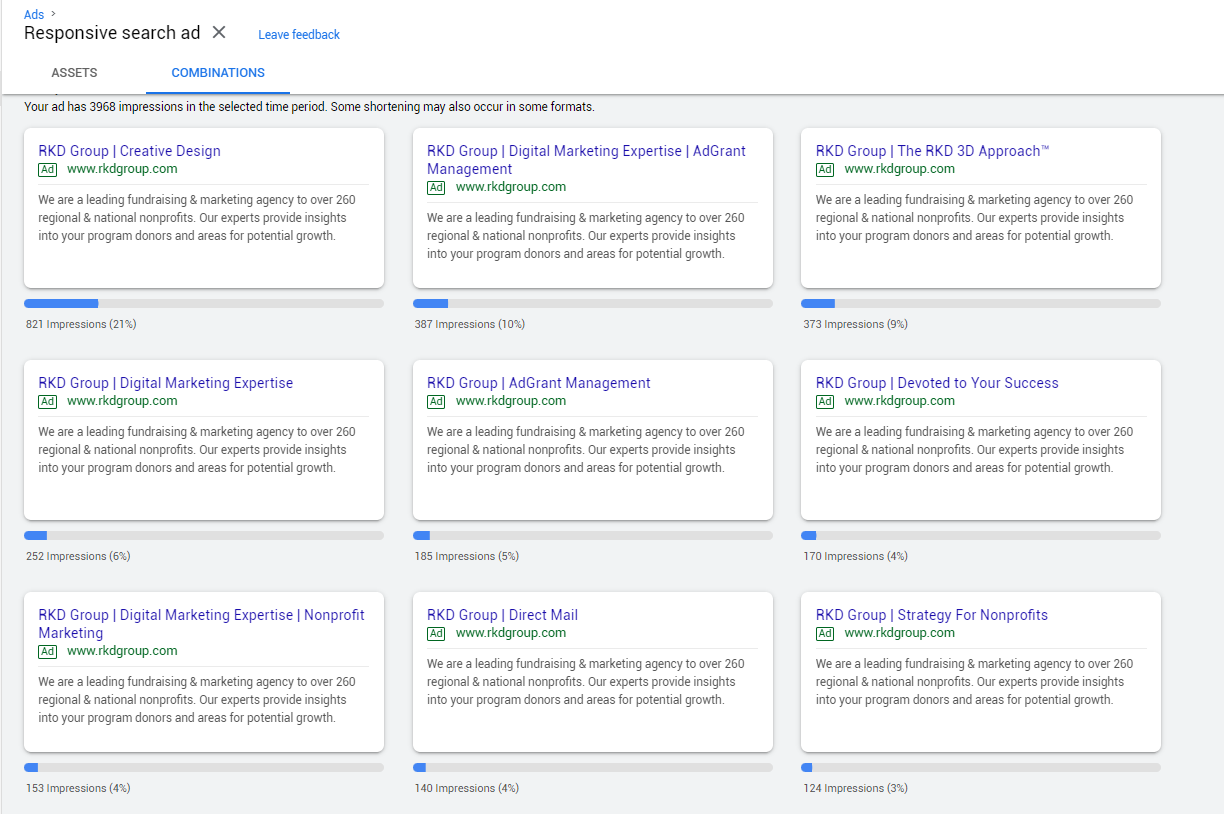Responsive search ads (RSAs) have been around for a couple of years now, but not enough nonprofit organizations have taken advantage of this option from Google. However, the recent addition of a new location feature to RSAs should draw a little extra attention from fundraisers.
As we’ve mentioned before, the digital advertising space is changing before our eyes thanks to artificial intelligence. Machine learning does the tough part of paid media for us – segmenting the audience and optimizing to deliver the right message.

THE BASICS OF PAID SEARCH
Let’s review the basics of paid search.
For starters, it’s not the same as SEO. We’re talking about the ads that typically appear at or near the top of the search page when using Google (and Bing, for that matter), just above the actual search results themselves.

Depending on the search terms, this space can be very competitive as companies battle it out to be the first one listed on the page. It can also become expensive when that competition heats up.
At the same time, users will often look past these ads and move on to the organic search results below.
If you’re paying a lot to be there, you’d better get a click. That’s where personalization, localization and context can play a big role.
THE DIFFERENCE BETWEEN RSAS AND ETAS
In 2016, Google thrilled advertisers with the introduction of expanded text ads (ETAs). These new ads increased the character length from 95 to 140 and allowed a second headline to appear with one 80-character description.
Google went a little further with ETAs in 2018. Organizations could add a third headline and two 90-character descriptions to their search ads, expanding the room to talk about their products and/or services.
At the same time, the advancements in AI prompted Google to unveil RSAs. These ads looked similar to ETAs but offered a wealth of options, allowing organizations to create multiple headlines and descriptions. With RSAs, you can create up to 15 headline combinations and 4 different descriptions.
Google’s AI can mix and match as many as 40,000 possible combinations, ultimately showing users the version that matches their behavior (including the type of device they’re on) and fits their needs. These options give RSAs the opportunity to compete in more auctions and match more queries.
Google recently added a new twist to RSAs that makes them even more effective: location insertion. This feature can change the text of the ad based on the user’s location or the location of interest in the search (e.g., “We deliver to {LOCATION(City)}”).

HOW NONPROFITS CAN MAXIMIZE RSAS
In today’s fundraising world, personalization is a critical part of connecting with donors. And that connection is a critical part of obtaining charitable gifts, as nonprofits learned in 2018.
Even though donors typically know the personalization is automated, they still prefer it over generic messages. With RSAs, donors see an ad that is optimized for their particular search on their particular device, leading to a better overall experience. You can’t do this with ETAs.
The new localization feature can be particularly useful for regional organizations, like food banks, animal welfare organizations or life-transformation ministries, or for national groups with regional chapters or affiliates. Think of headlines like:
- Adopt a Dog in CITY
- Food Assistance in CITY
- Homeless Shelter in CITY
Nonprofits can test and optimize their copy to get better – and more cost-effective – results. You can also take the top-performing results from RSAs and turn them into ETAs (which can outperform RSAs in some areas) or Google Grant ads.
When all is said and done, RSAs save time and money while delivering a better experience to donors. That’s a win for everyone.





Leave a comment: